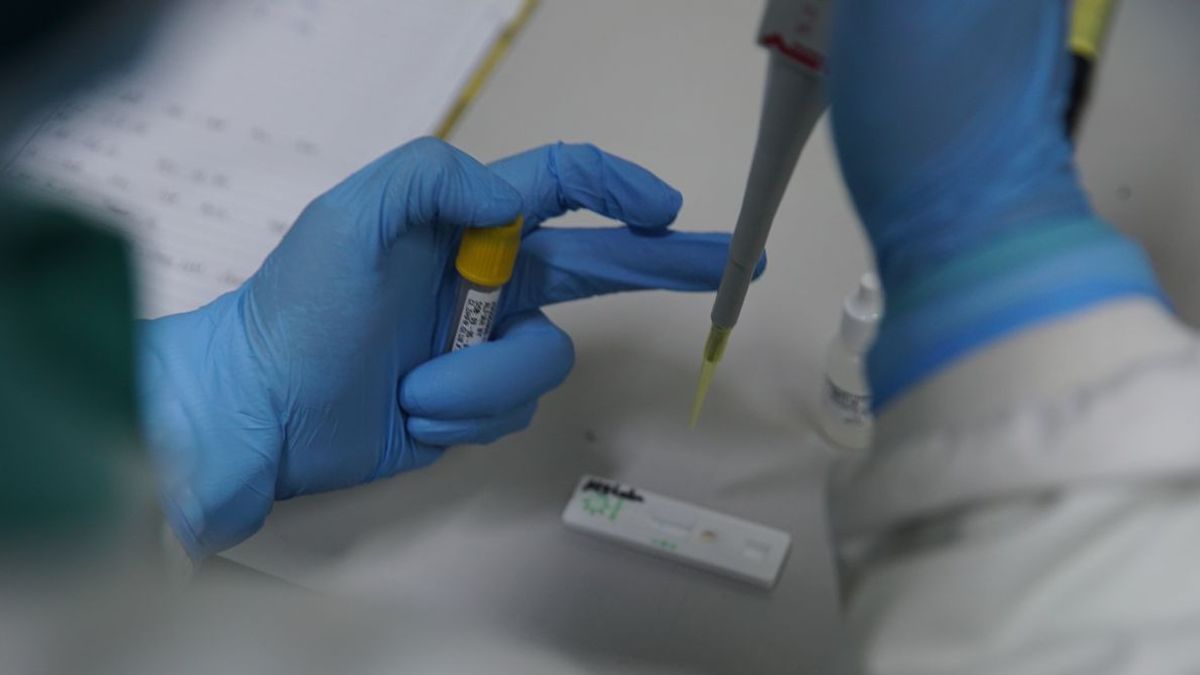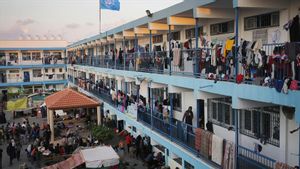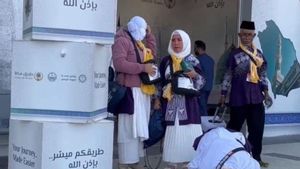JAKARTA - The COVID-19 Handling Task Force (Satgas) stated that the Omicron BA.2 sub-variant is of concern because it has mutations that can cause differences in PCR test results.
"Currently, Omicron variants based on their genetic makeup are categorized into B.1.1529, BA.1, BA.2 and BA.3. In particular, Omicron BA.2 is of concern because it has mutations that can cause differences in PCR results," said the spokesperson. Wiku Adisasmito, the National COVID-19 Handling Task Force, was quoted as saying by Antara, Thursday, January 27.
In other Omicrons, he said, there was a mutation in the form of a loss of a certain arrangement in the S gene that could lead to the detection of other genes, but the S gene was not detected or the S Gene Target Failure (SGTF) in the PCR test.
"However, in Omicron BA.2 this arrangement is not lost so that PCR does not produce SGTF results or the results are the same as other variants that are not Omicron, even though BA.2 is one type of Omicron," he explained.
In principle, Wiku said it would take time to research the characteristics of the new variants that emerged, especially to analyze their epidemiological impacts.
According to him, the four types of Omicron variants are currently still in the research process and there has been no further report from WHO.
"Thus, the prevention strategy is the best step in dealing with the emergence of new variants of any kind. In this case, the government always evaluates and monitors the overall prevention strategy carried out, from the policies of foreign travelers to the enforcement of health protocol discipline," he said.
Since its first appearance on December 16, 2021 until now, within six weeks, 1,766 cases of Omicron have been detected in Indonesia.
"When compared to the same period, the total number of additional positive cases of COVID-19 was 41,549 cases. This means, the Omicron variant detected so far has caused 4.25 percent of the total positive cases in Indonesia," he explained.
However, Wiku emphasized that it is important to understand that the current Omicron cases are those detected through whole genome sequencing (WGS) examinations in samples from existing positive cases.
"It may not represent the actual number of cases," he said.
The English, Chinese, Japanese, Arabic, and French versions are automatically generated by the AI. So there may still be inaccuracies in translating, please always see Indonesian as our main language. (system supported by DigitalSiber.id)













